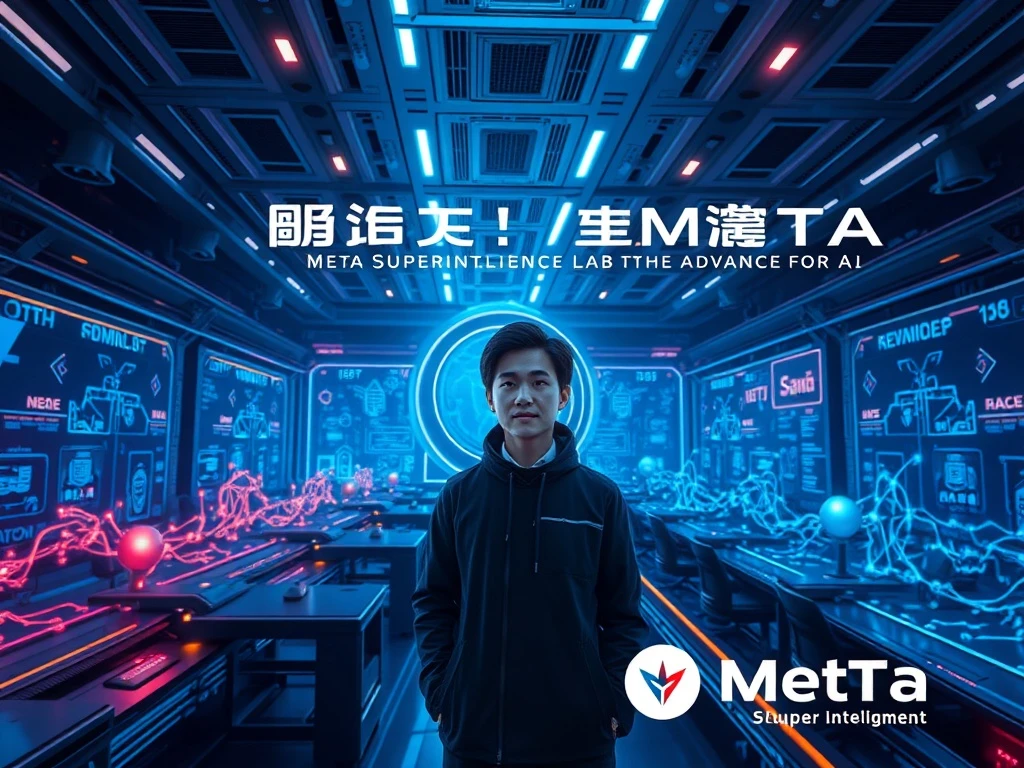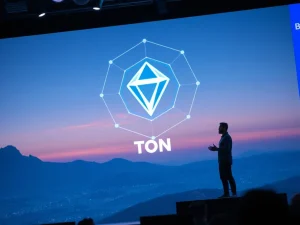Meta AI’s Strategic Move: Shengjia Zhao Appointed Chief Scientist to Accelerate Superintelligence

The artificial intelligence landscape is witnessing an unprecedented acceleration, and Meta AI is making a monumental stride. In a move that sent ripples across the tech world, Meta has announced the appointment of Shengjia Zhao, a former OpenAI luminary, as Chief Scientist for its Superintelligence Labs. This isn’t just another executive hire; it’s a clear declaration of Meta’s intent to dominate the frontier of AI, signaling an intensified AI Race that promises to reshape our digital future.
Shengjia Zhao: The Architect of Meta’s AI Ambitions
Who is Shengjia Zhao, and why is his appointment such a game-changer for Meta? Zhao brings an unparalleled pedigree to the table, having been instrumental in the development of some of the most influential AI models at OpenAI, including the revolutionary ChatGPT and the powerful GPT-4. His work extends to pioneering OpenAI’s first AI reasoning system, ‘o1,’ a testament to his expertise in building models that don’t just recognize patterns but truly understand context and make complex decisions. Joining Meta after co-founding the Superintelligence Labs and serving as lead scientist since its inception, Zhao’s elevation to Chief Scientist solidifies his foundational role. CEO Mark Zuckerberg himself highlighted Zhao’s critical contributions, emphasizing the strategic importance of his leadership in Meta’s pursuit of advanced AI capabilities. This strategic move aims to bridge existing gaps in Meta’s AI portfolio, particularly in reasoning and contextual understanding.
Igniting the AI Race: Meta’s Aggressive Pursuit of Talent
Meta isn’t just participating in the AI Race; it’s aggressively upping the ante. The company’s strategy under Alexandr Wang’s leadership for Superintelligence Labs is clear: challenge established giants like OpenAI and Google DeepMind head-on. This isn’t merely about developing new models; it’s about assembling an elite dream team. Meta has reportedly been on an aggressive recruitment spree, poaching top researchers from its closest competitors. Think unprecedented compensation packages, direct outreach from Mark Zuckerberg himself, and even ‘exploding offers’ – highly attractive job proposals with extremely tight acceptance windows. Key figures like Jiahui Yu and Hongyu Ren, who contributed to OpenAI’s reasoning models, and specialists from OpenAI’s Zurich office focusing on multimodal AI, are now part of Meta’s arsenal. This bold talent acquisition strategy underscores Meta’s commitment to gathering the brightest minds to push the boundaries of artificial intelligence.
Building AI Superintelligence: The Vision and Infrastructure Backbone
The ambition to achieve AI Superintelligence requires more than just brilliant minds; it demands colossal computational power. Meta is making significant infrastructure investments to support its long-term vision. By 2026, the company plans to deploy ‘Prometheus,’ a one-gigawatt cloud computing cluster in Ohio. To put that into perspective, this infrastructure will be capable of supporting over 750,000 homes, providing the sheer processing power needed to train and test frontier AI models efficiently and at scale. This massive investment in computational resources, combined with Zhao’s technical leadership and Wang’s strategic vision, signals a coordinated, multi-faceted push to establish Meta as a dominant force in superintelligence. The Superintelligence Labs are also expected to collaborate with Meta’s existing AI units, such as FAIR (Fundamental AI Research), aiming to integrate foundational research with applied innovation, though the exact synergies are still evolving.
The Chief Scientist Appointment: A Pivotal Moment for Meta AI
The formal Chief Scientist Appointment of Shengjia Zhao is a pivotal moment for Meta AI. It signifies Meta’s deep understanding of AI’s transformative potential and the urgency to secure top-tier talent in an intensely competitive market. Zhao’s background, particularly his work on reasoning models, directly addresses a crucial gap in Meta’s previous AI endeavors. The goal is to create systems that can not only process vast amounts of data but also contextualize it, solve complex problems, and exhibit deeper decision-making abilities. This strategic realignment – combining scientific rigor, aggressive hiring, and unparalleled infrastructure scaling – positions Meta not just as a competitor, but as a potential leader poised to shape the future trajectory of artificial intelligence. As the global AI landscape continues to evolve at breakneck speed, Meta’s bold moves suggest a future where its AI capabilities could redefine user experiences across its vast ecosystem.
Meta’s strategic appointment of Shengjia Zhao as Chief Scientist for Superintelligence Labs is a clear signal of its heightened ambition in the AI domain. This move, coupled with aggressive talent acquisition and massive infrastructure investments, positions Meta as a formidable contender in the intensifying AI race. With Zhao’s expertise in reasoning models and Mark Zuckerberg’s unwavering commitment, Meta is poised to push the boundaries of what AI can achieve, potentially ushering in a new era of superintelligent systems. The coming years will undoubtedly reveal the full impact of these strategic decisions on the future of technology and our daily lives.
Frequently Asked Questions (FAQs)
- Who is Shengjia Zhao and what is his new role at Meta?
Shengjia Zhao is a former OpenAI researcher who played a key role in developing models like ChatGPT and GPT-4. He has been appointed as the Chief Scientist for Meta’s Superintelligence Labs, tasked with driving frontier AI research and advancing the company’s AI capabilities, particularly in reasoning. - Why is Meta making such a significant AI leadership appointment now?
Meta’s appointment of Shengjia Zhao reflects its escalating AI ambitions and its commitment to competing fiercely in the global AI race. The company aims to develop advanced AI systems that go beyond basic pattern recognition, requiring top-tier talent and substantial computational infrastructure. - How does Meta plan to compete with AI leaders like OpenAI and Google DeepMind?
Meta’s strategy involves a multi-pronged approach:- Top Talent Acquisition: Aggressively recruiting key researchers from competitors with attractive compensation and unique offers.
- Strategic Leadership: Combining Zhao’s technical prowess with Alexandr Wang’s business strategy.
- Infrastructure Investment: Deploying massive computing clusters like “Prometheus” to power large-scale AI training.
- What are Superintelligence Labs and what is their primary goal?
Superintelligence Labs is a new unit within Meta focused on developing advanced AI systems that aim to go beyond current AI capabilities, particularly in areas like contextual understanding and complex decision-making. Their goal is to push the boundaries of artificial general intelligence (AGI) and potentially achieve superintelligence. - What is “Prometheus” and its significance to Meta’s AI efforts?
“Prometheus” is Meta’s planned one-gigawatt cloud computing cluster in Ohio, slated for deployment by 2026. This massive infrastructure will provide the immense computational power necessary to train and test Meta’s large-scale, frontier AI models efficiently, serving as a critical backbone for their superintelligence ambitions. - Will Meta’s existing AI units like FAIR be integrated with Superintelligence Labs?
While the exact synergies are still being defined, Superintelligence Labs are expected to collaborate with Meta’s existing AI units, such as FAIR (Fundamental AI Research). The aim is to integrate foundational research with applied innovation, fostering a cohesive approach to Meta’s overall AI development.









